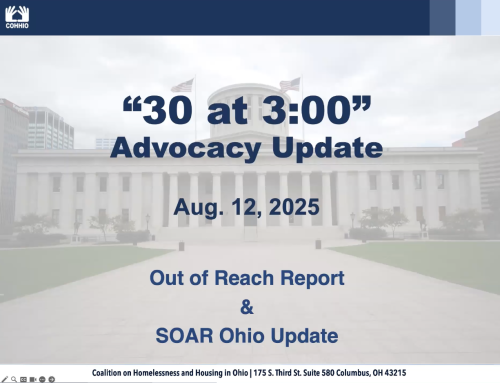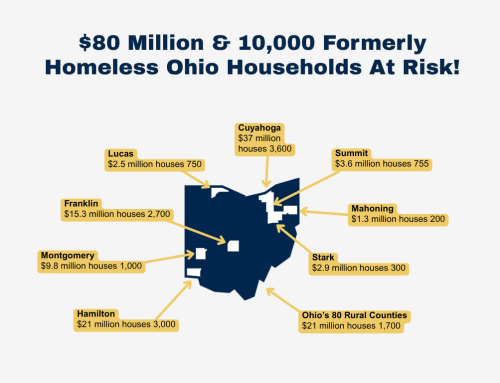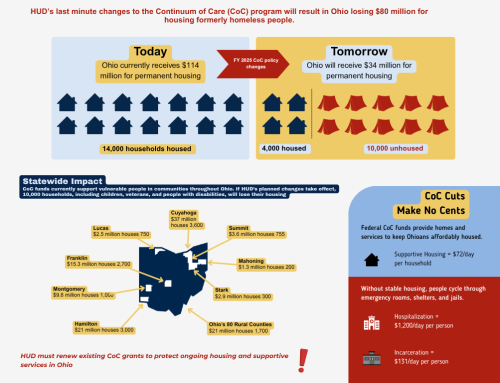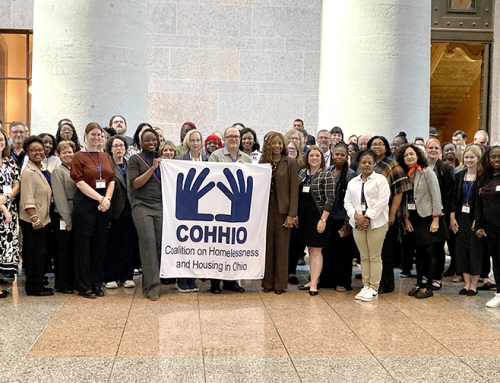For Immediate Release Dec. 10, 2024
Homeless and business advocacy groups joined forces Tuesday to urge the next General Assembly to enact policies that reverse housing cost inflation and ensure more Ohioans have access to a safe, decent, affordable home.
Members of the Home Matters to Ohio coalition said their plan would help lawmakers tackle one of the most challenging issues facing their constituents and the local economy – the affordable housing crisis. The 2025 housing platform outlines 11 realistic and achievable policy proposals designed to preserve and create more affordable homes in Ohio.
Ohio Chamber of Commerce President and CEO Steve Stivers said more than 1 million Ohioans now live in households that spend over half their income on housing, putting them at high risk of eviction and foreclosure.
“Affordable housing is an economic development issue that companies consider when deciding where to locate because employers need a healthy, stable workforce in order to thrive and grow,” Stivers said during a news conference at Chamber headquarters. “Affordable housing is the foundation for healthy, educated residents and a robust and productive workforce.”
Amy Riegel, executive director of the Ohio Coalition on Homelessness and Housing in Ohio, said the affordable housing shortage became a major campaign issue in the recent election.
“Big majorities of Ohio voters from both parties agree that the government needs to invest more in affordable housing over the long term,” she said, citing a recent National Low Income Housing Coalition poll showing that 75% of Ohio voters believe housing affordability is a serious problem. “The Home Matters to Ohio platform is a roadmap for lawmakers to fulfill their promises to fix the affordable housing crisis.”
The platform recommends the state to build on recent efforts to support and incentivize the development and preservation of affordable housing, such as the new Ohio Low Income Housing Tax Credit, Welcome Home Ohio, and the Single-Family Housing Tax Credit Program that were created in the current biennial budget. It also urges lawmakers protect and expand proven resources, like the Ohio Housing Trust Fund.
Other recommendations center around reforming property taxes, requiring greater transparency for institutional real estate investors, supporting tenants facing eviction, and modernizing local zoning codes that often stymie development of affordable housing. Several policies overlap with the recommendations of the Ohio Senate Select Committee on Housing, and the coalition looks forward to working with the next General Assembly to advance these proposals.
Ohio Capital Corporation for Housing President and CEO Catherine Cawthon said the next budget cycle presents an opportunity to thwart the state’s projections that Ohio could lose up to 675,000 residents over the next 25 years.
“Ohio can keep young people, families, and seniors in our communities if we embrace an ‘all of the above’ approach to affordable housing,” she said. “We need to leverage new and existing solutions to ensure that everyone has a quality home to own or rent in Ohio.”
-30-








